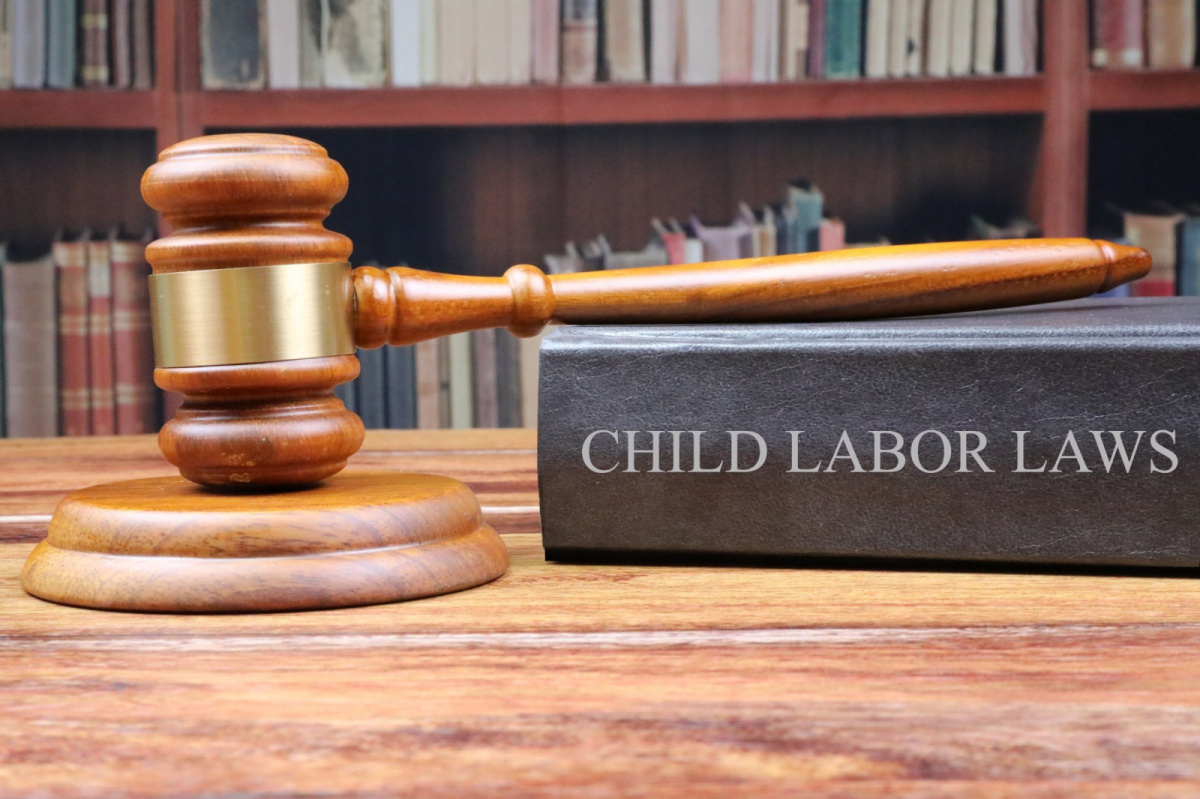Notably, in 2023, Reuters discovered 14-year-olds employed in unsafe conditions in Alabama’s Hyundai Motor Co and Kia Corp factories.
Illegal child labor is on the rise throughout the manufacturing industry in the United States. As migrant children continue to arrive in the country in record numbers, they’re increasingly employed in unsafe occupations, including jobs in factories, construction, and meat plants. 4,474 children were employed in breach of federal child labor regulations from October 1st 2022 to July 20th 2023, with employers consequently fined over $6.6 million, according to the Department of Labor. That’s 44% more children and an 87% increase in fines compared to the same period the previous year. Despite the Biden administration increasing fines for businesses that use illegal child labor, numerous states across the U.S. now aim to loosen child labor regulations.
Manufacturing labor shortage, low pay: perfect storm for child labor
Notably, in 2023, Reuters discovered 14-year-olds employed in unsafe conditions in Alabama’s Hyundai Motor Co and Kia Corp factories. According to labor law experts, the pressure to meet demand can mean employers are happy to hire anyone (legal or illegal) in order to keep assembly lines moving. “It seems like the stage was set for this to happen,” Terri Gerstein, director of the state and local enforcement project at Harvard Law School’s Labor and Worklife Program, told Reuters. “Plants in remote, rural areas. A region with low union density. Not enough regulatory enforcement. Use of staffing agencies.” The manufacturing industry’s labor shortage in combination with measly factory job wages mostly attract minors, as well as undocumented migrants. “When you have workers who are desperate for jobs and they’re not empowered and you have a lot of competition, you often see a race to the bottom,” said Jordan Barab, a former deputy assistant secretary at the Occupational Safety and Health Administration.
Minors killed and injured in dangerous working environments
The federal Fair Labor Standards Act (FLSA) says teens aged 14 can legally start work, while hours for employees under 16 are restricted. Teens under 18 aren’t allowed to work in dangerous environments, including the manufacturing industry. Despite this, a sixteen-year-old boy was killed while working at a sawmill in Wisconsin in 2023; he became stuck in the conveyor belt while trying to unblock a wood-stacking machine. Another sixteen-year-old boy was killed by a tractor while on the job at a landfill in Missouri. The same year, thirteen- and fourteen-year olds also sustained severe burns from cleaning agents while at work in factories for Packers Sanitation Services Inc. across eight states. Although standards of health and safety have improved in the manufacturing industry in recent years, it’s no place for minors. Fortunately, in a bid to make dangerous workplaces safer, difficult tasks can be automated by artificial intelligence, and therefore reduce risk of injury for human workers.
Interagency task force launched to combat child labor
The Department of Labor has launched the Interagency Task Force to Combat Child Labor Exploitation in partnership with other governmental organizations. “The Biden-Harris administration, Department of Labor and members of the Interagency Task Force to Combat Child Labor Exploitation are leaving no stone unturned to root out exploitative child labor,” said Acting Secretary of Labor Julie Su. “Like the President, we believe that any child working in a dangerous or hazardous environment is one child too many. The Department of Labor is using the tools and resources at our disposal to ensure companies take responsibility for compliance with federal labor law, and that includes up and down their supply chains”. In 2023, the task force successfully stopped child labor-produced products from being shipped under the “hot goods” provision in the Fair Labor Standards Act. At least eleven teens were discovered working and using hazardous machinery at a Minnesota factory run by Monogram Meat Snacks. The company was fined over $140,000 as a result.
Child labor laws repealed in ten states

Yet, despite these efforts, around ten states across the country have recently either passed or introduced legislation to erode child labor protections. In Arkansas, a bill was signed into law that rolls back labor protections for children 14-15 years old, while Iowa also made it legal for teens to work a total of six hours per day and in roles that were previously off-limits (including work in manufacturing, freezers, meat coolers, and industrial launderers). Similarly, in 2023, South Dakota, Ohio, and Missouri also introduced bills that repeal child labor laws. A proposed Nebraska bill would lower the minimum wage for minors, while Minnesota may also make it legal for 16- and 17-year-olds to work on construction sites. However, the Minnesota bill also includes clauses that ensure teens don’t work in dangerous conditions, as well as take mandated safety classes.
“While there still remains much to do in the effort to root out child labor in this country, the Biden-Harris administration, the Department of Labor and the Task Force and its members are fully committed to using every governmental lever possible under federal law and current funding levels to stop the exploitation of young people in workplaces across the country,” noted Acting Secretary Su. “We must all work together to make sure that children are safe, healthy and protected from exploitation”.


Join the conversation!